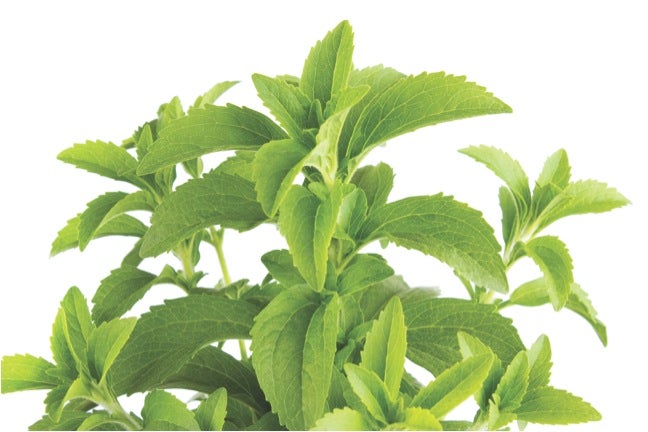Are “Natural Sweeteners” Really A Healthy Alternative?

Sugar has gotten a bad rap lately, most of it well-deserved. The truth is that we all eat too much sugar—it’s easy to over-consume because it’s in everything from breads and cereals to spreads, sauces and sodas. But for athletes, sugar can also be a good thing: a vital performance enhancer to fuel high-intensity workouts and races.
What about when we’re not working out? Are those sweeteners you’ve seen in the health food store really healthy?
Stevia has become the quintessential sugar alternative as a calorie-free, natural sweetener. It is derived from an herb native to South America, where it has been used for centuries. With an intensely sweet taste (about 300 times sweeter than sugar) yet zero carbs or sugar molecules, stevia seems ideal for satisfying our insatiable desire for sweet foods while still being able to squeeze into our Lycra on race day.
The herb itself is quite different than some of the white powders sold as stevia derivatives and added to many commercial products. These processed sweeteners, while derived from the plant and hence labeled as “natural,” are actually refined and quite removed from the original, often with other additives such as dextrose or sugar alcohols. If you are after a truly natural product, look for green-leaf stevia or a liquid stevia extract. (Or plant your own stevia bush and “brew” your own extract.) While natural stevia leaf has a slightly licorice overtone, processed stevia can sometimes have a bitter aftertaste.
Stevia might offer a lower caloric equivalent, but its use and consumption is usually associated with nutrient-poor foods such as sodas and candy, meaning that not only is there less room for more nutrient-dense and beneficial options (such as vegetables, proteins and fruits), but always consuming sweet-tasting foods, regardless of their caloric content, helps maintain our cravings for more of these sweet foods.
RELATED: Whole Foods For Recovery
Other natural sweeteners you should consider are maple syrup, agave, honey, coconut sugar, blackstrap molasses and date sugar. These natural sweeteners contain small amounts of antioxidants, vitamins, minerals and amino acids, making them more nutritious than refined sugar. Unfiltered raw honey can help boost immunity, promote wound healing and may reduce symptoms of hay fever. Agave syrup, coconut sugar and date sugar are often touted as low-glycemic-index sugars, meaning less of an insulin spike and stabler blood sugar levels.
What about artificial sweeteners? Although there’s little information on the actual dangers of consuming artificial sweeteners in “regular” amounts, there is evidence that suggests they are not the solution to weight loss. Recent studies indicate that artificial sweeteners as well as sugars alter the bacterial colonies in our gut, which disrupt hunger and satiety signals and increase gut inflammation. “Diet” foods may also encourage you to eat more, even subconsciously, and maintain your cravings for sweet foods.
Bottom line: Try to make the majority of your foods whole, real and fresh, with minimal sugars and minimal refined, processed, packaged foods. Regularly consuming sweetened foods increases your cravings for, and reliance on sugar, so if you do use sweeteners, use them sparingly.
Try this: Plant your own stevia bush and “brew” your own extract for a truly natural sweetener.
Pip Taylor is a professional triathlete and a sports nutritionist. Visit Piptaylor.com, or follow her on Twitter @PipTaylorRacing.